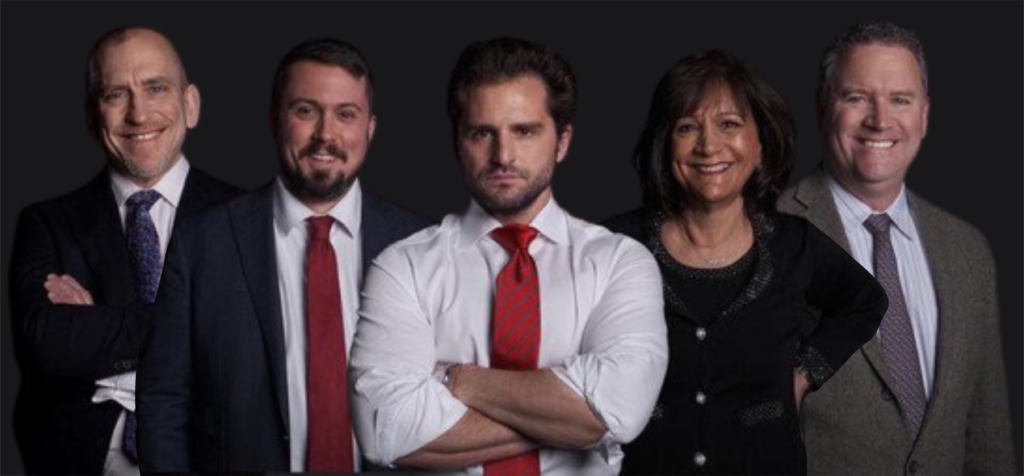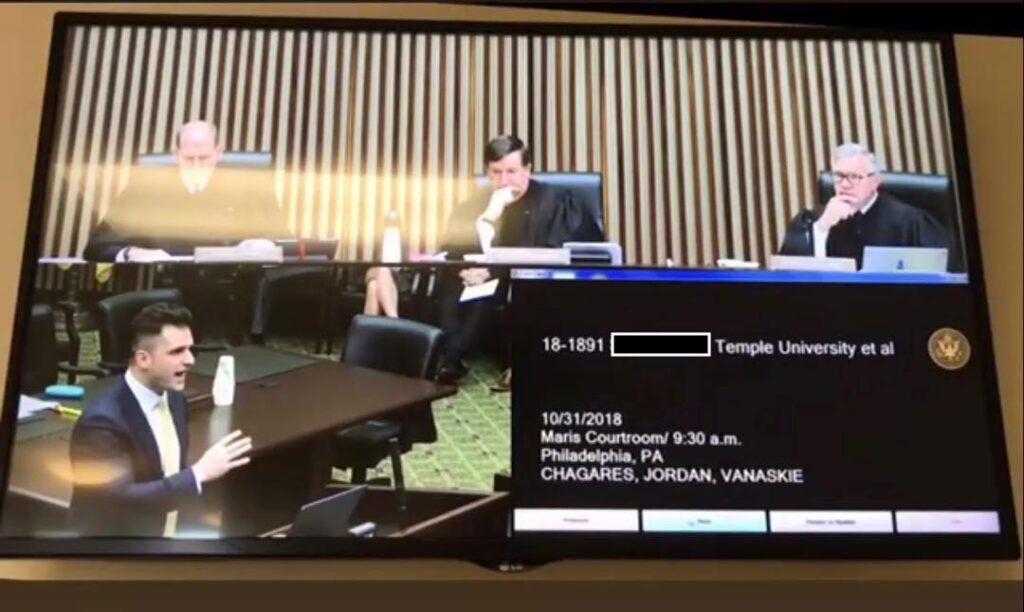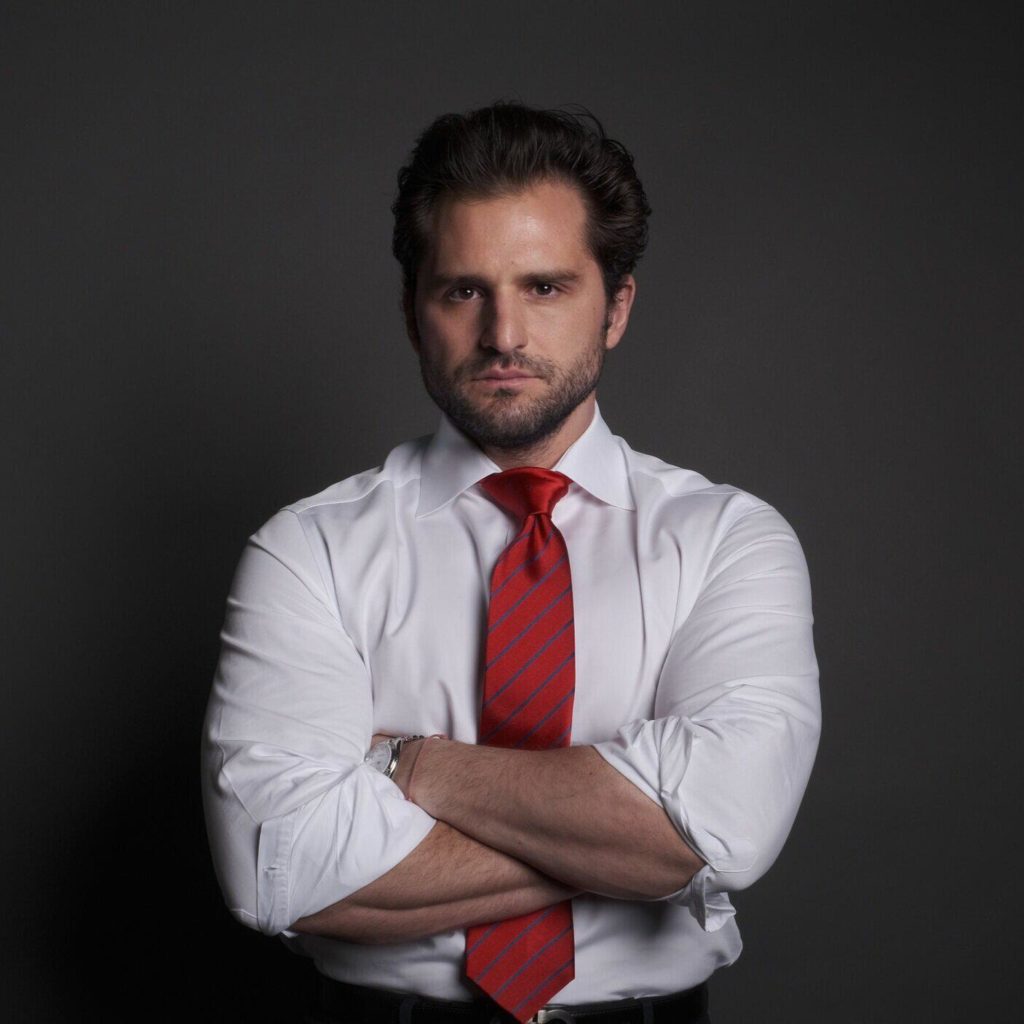
School Discipline Lawyers
Florida School Discipline Lawyers
Are you looking for a School Discipline Lawyer in Florida? Look no further. The Education Lawyers at Montgomery Law have spent the last decade litigating school discipline issues against all levels of Schools and Universities.
There are so many Colleges and Universities in Florida, all of them so powerful and foreboding when they have decided to use their size and resources against you, the lonely student. We stand by your side when schools decide to attack. We stand by your side when schools take aim against you for disciplinary allegations.
Issues We Handle
- Plagiarism
- Title IX Issues
- Fraternity / Sorority Issues
- Grade Disputes
- Dismissals, and Discrimination
- Other Disciplinary Issues
What happens at a school disciplinary hearing?
The procedures vary from school to school, but generally you can expect the following (although it is always best to consult with an attorney to make sure you — and the school — are following the polices and procedures).
Some vocabulary to remember as you read the below timeline: The Complainant would be someone (maybe another student or teacher that is making a complaint about you, the student being accused). This would be in a case where there was another person involved rather than a situation involving just you, such as possible cheating. The student being accused is the Respondent.
Free Case Evaluation
Tell us about your situation so we can get started fighting for you. We tailor each case to meet our clients’ needs.
Possible school disciplinary hearing outline (what to expect)
- Explanation of Process and Introductions
- Opening Statements
- Presentation of Charge against the Respondent
- School presents a summary of the investigation and evidence
- School presents their witnesses
- Questions from Complainant (where appropriate), Respondent and Panel
- Presentation of Respondent’s Case
- Statement by Respondent
- Presentation of Respondent’s witnesses
- Questions from the School and Panel
- Summary Statements By School
- Summary Statements By Complainant (where appropriate)
- Summary Statements By Respondent
- Questions from School, Respondent, and Complainant (where appropriate) and Panel
- Adjournment
- Deliberation
- Decision

If the respondent is not found responsible, the hearing is adjourned. If the respondent is found responsible, the Panel will be given a sealed envelope containing: (1) example of sanctions that have been imposed in similar prior cases; (2) any previous offenses by the Respondent, (3) Schools initially recommended sanctions, and then enter into deliberations about sanctions.
Note that all of this does not always happen in one day and the time from deliberation to decision can be days of weeks. You will want to make sure the school is following their own policies regarding timelines as well as due process rules that may be generally applicable.
Admissibility of Evidence in a School Discipline Hearing:
The typical rules of evidence applicable to governmental legal proceedings generally do not apply in school disciplinary hearings. Information is generally deemed to be admissible if it relevant, not unduly repetitious, and of the type on which reasonable people are generally rely on in the conduct of serious affairs. With that said, who gets to make that call? The School. There can be just as many problems with the evidence that the school lets in as with the evidence that the school keeps out. An experienced school discipline lawyer may be able to assist with ensuring that only the appropriate evidence is considered and that nothing exonerating (evidence that can show your innocence) is left out.
Panel Decision
Panel Decisions generally require a majority vote, not the unanimous agreement you might expect from a jury in a criminal proceeding.

Our school discipline lawyers are standing by to support and serve YOU.
If you have questions please feel free to chat with the LiveChat service that we have on this site (always a live human!).
Frequently Asked Questions regarding College / University discipline
Everything you need to know about the, "Student Code of Conduct."
Student Code of Conduct
Schools expect that all students will conduct themselves in accordance with the Student Code of Conduct. This includes Students and any officially registered student organization. Generally, without even knowing it, as a condition of admission, you have already agreed to abide by all university policies contained in their Student Code of Conduct and other University publications and notices.
FERPA / Privacy
Generally, all violations of university policies documented in a student's conduct file are part of that student's educational record. The Family Educational Rights and Privacy Act (FERPA) of 1974 that provides confidentiality of students' educational records and protects these files and their contents. This confidentiality allows only persons who meet appropriate disclosure requirements to have access to these records. When conduct involves a crime of violence or sex offense, FERPA permits the School, College or University, at its discretion, to disclose to the complainant the results of a disciplinary proceeding against the alleged perpetrator.
Established policies
Most colleges and universities have established policies that are considered necessary to preserve and maintain an environment conducive to learning, to ensure the safety and welfare of members of the school community. When schools create their policies, they are not only binding you to their rules and regulations, but they are binding themselves as well to any procedural rules that are set forth in the Student Code of Conduct.
Criminal / Civil Charges
Procedures under a typical Student Code of Conduct may be carried out before, simultaneously with or following a civil or criminal proceeding on or off campus.
Sanctions
Sanctions may be imposed against a student or registered student organization for the violation of any Student Code of Conduct policies that occurs on or off campus. Sanctions are intended to be developmental and educational in scope (but sometimes can be retaliatory, discriminatory, punitive or just plain personal) and are determined at the sole discretion of the School, College or University.
On or Off Campus
Most schools, colleges and universities reserve the right to discipline any student or remove affiliation with any registered student organization whose conduct on or off campus violates the Student Code of Conduct.
Below is a list of Colleges and Universities in Florida where we represent Students
State University System
The Florida College System comprises twenty-eight community colleges and state colleges
- Broward College (Davie)
- Chipola College (Marianna)
- College of Central Florida (Ocala)
- Daytona State College (Daytona Beach)
- Eastern Florida State College (Cocoa)
- Florida Gateway College (Lake City)
- College of the Florida Keys (Key West)
- Florida SouthWestern State College (Fort Myers)
- Florida State College at Jacksonville (Jacksonville)
- Gulf Coast State College (Panama City)
- Hillsborough Community College (Tampa)
- Indian River State College (Fort Pierce)
- Lake–Sumter State College (Leesburg)
- Miami Dade College (Miami)
- North Florida Community College (Madison)
- Northwest Florida State College (Niceville)
- Palm Beach State College (Lake Worth)
- Pasco–Hernando State College (New Port Richey)
- Pensacola State College (Pensacola)
- Polk State College (Winter Haven)
- Santa Fe College (Gainesville)
- Seminole State College of Florida (Sanford)
- South Florida State College (Avon Park)
- St. Johns River State College (Palatka)
- St. Petersburg College (St. Petersburg)
- State College of Florida, Manatee–Sarasota (Bradenton)
- Tallahassee Community College (Tallahassee)
- Valencia College (Orlando)
Other public institutions
The State University System of Florida comprises twelve member universities
- Florida A&M University (Tallahassee)
- Florida Atlantic University (Boca Raton)
- Florida Gulf Coast University (Fort Myers)
- Florida International University (Miami)
- Florida Polytechnic University (Lakeland)
- Florida State University (Tallahassee)
- New College of Florida (Sarasota)
- University of Central Florida (Orlando)
- University of Florida (Gainesville)
- University of North Florida (Jacksonville)
- University of South Florida (Tampa)
- University of West Florida (Pensacola)
Private colleges and universities
- Argosy University (Tampa)
- Atlantis University (Miami-Dade County)[1]
- Beacon College (Leesburg)
- Carlos Albizu University (Miami)
- Columbia College (Jacksonville) (Orlando)
- DeVry University (Orlando)
- Embry–Riddle Aeronautical University (Daytona Beach)
- Flagler College (St. Augustine)
- Florida Institute of Technology (Melbourne)
- Florida National University (Hialeah)
- Herzing University (Orlando)
- Hodges University (Naples)
- Jacksonville University (Jacksonville)
- Keiser University (Fort Lauderdale)
- Lake Erie College of Osteopathic Medicine (Bradenton)
- Lynn University (Boca Raton)
- Millennia Atlantic University (Doral)
- Miami International University of Art & Design (Miami)
- Miami Regional University (Miami Springs)
- National Louis University (Tampa)
- National University of Medical Sciences (Naples)
- Nova Southeastern University (Davie)
- Nexus University (Miami)
- Okan International University (Dania Beach)
- Rasmussen College (Ocala, Fort Myers, New Port Richey/West Pasco, Land o’ Lakes/East Pasco, and Tampa/Brandon)
- Rollins College (Winter Park)
- San Ignacio University (Doral)
- Schiller International University (Largo)
- Southeastern College (Miami Lakes and West Palm Beach)
- Southern Technical College (Orlando)
- Springfield College (Tampa)
- Stetson University (DeLand)
- University of Miami (Coral Gables)
- University of Phoenix (Orlando)
- University of Tampa (Tampa)
- Webber International University (Babson Park)
- Western Michigan University Cooley Law School (Tampa)
Trade/technical institutions
- Acupuncture and Massage College (Miami)
- AdventHealth University (Orlando)
- Aerosim Flight Academy (Sanford)
- American College for Medical Careers (Orlando)
- Atlantic Institute of Oriental Medicine (Fort Lauderdale)
- City College (Fort Lauderdale)
- College of Business and Technology (Miami) a.k.a. “CBT College”
- Digital Media Arts College (Boca Raton)
- Dragon Rises College of Oriental Medicine (Gainesville)
- East West College of Natural Medicine (Sarasota)
- Everest University (Pompano Beach)
- Everglades University (Boca Raton)
- Florida Career College (Miami)
- Florida College of Integrative Medicine (Orlando)
- Florida Technical College (Cutler Bay, DeLand, Kissimmee, Lakeland, Orlando, and Pembroke Pines)
- Full Sail University (Winter Park)
- Jersey College (Tampa, Jacksonville, and Fort Lauderdale)
- Jose Maria Vargas University (Pembroke Pines)
- Miami International University of Art & Design (Miami)
- Northwest Lineman College (Edgewater)
- Orlando Culinary Academy (Orlando)
- Remington College (Tampa)
- Ringling College of Art and Design (Sarasota)
- Southern Technical College (Orlando)
Private institutions
- AdventHealth University (Orlando)
- Ave Maria University (Ave Maria)
- Baptist College of Florida (Graceville)
- Barry University (Miami Shores)
- Bethune–Cookman University (Daytona Beach)
- Covenant Life University (Fort Myers)
- Eckerd College (St. Petersburg)
- Edward Waters University (Jacksonville, Florida)
- Emmaus Baptist College (Brandon, Florida)
- Florida College (Temple Terrace)
- Florida Memorial University (Miami Gardens)
- Florida Southern College (Lakeland)
- University of Fort Lauderdale (Fort Lauderdale)
- Gordon–Conwell Theological Seminary (Jacksonville)
- Hobe Sound Bible College (Hobe Sound)
- Johnson University Florida (Kissimmee)
- Palm Beach Atlantic University (West Palm Beach)
- Pensacola Christian College (Pensacola)
- Reformed Theological Seminary (Orlando)
- Saint Leo University (St. Leo)
- St. John Vianney College Seminary (Miami)
- St. Thomas University (Miami Gardens)
- South Florida Bible College & Theological Seminary (Deerfield Beach)
- Southeastern University (Lakeland)
- Talmudic University Yeshiva Bais Moshe Chaim (Miami Beach)
- Trinity Baptist College (Jacksonville)
- Trinity College (New Port Richey)
- Warner University (Lake Wales)
State University System
.
The Florida College System
The Florida College System comprises twenty-eight community colleges and state colleges.
Other public institutions
Private colleges and universities
Private institutions
Religiously affiliated institutions
Ave Maria University
- AdventHealth University (Orlando)
- Ave Maria University (Ave Maria)
- Baptist College of Florida (Graceville)
- Barry University (Miami Shores)
- Bethune–Cookman University (Daytona Beach)
- Covenant Life University (Fort Myers)
- Eckerd College (St. Petersburg)
- Edward Waters University (Jacksonville, Florida)
- Emmaus Baptist College (Brandon, Florida)
- Florida College (Temple Terrace)
- Florida Memorial University (Miami Gardens)
- Florida Southern College (Lakeland)
- University of Fort Lauderdale (Fort Lauderdale)
- Gordon–Conwell Theological Seminary (Jacksonville)
- Hobe Sound Bible College (Hobe Sound)
- Johnson University Florida (Kissimmee)
- Palm Beach Atlantic University (West Palm Beach)
- Pensacola Christian College (Pensacola)
- Reformed Theological Seminary (Orlando)
- Saint Leo University (St. Leo)
- St. John Vianney College Seminary (Miami)
- St. Thomas University (Miami Gardens)
- South Florida Bible College & Theological Seminary (Deerfield Beach)
- Southeastern University (Lakeland)
- Talmudic University Yeshiva Bais Moshe Chaim (Miami Beach)
- Trinity Baptist College (Jacksonville)
- Trinity College (New Port Richey)
- Warner University (Lake Wales)
Trade/technical institutions
- Acupuncture and Massage College (Miami)
- AdventHealth University (Orlando)
- Aerosim Flight Academy (Sanford)
- American College for Medical Careers (Orlando)
- Atlantic Institute of Oriental Medicine (Fort Lauderdale)
- City College (Fort Lauderdale)
- College of Business and Technology (Miami) a.k.a. “CBT College”
- Digital Media Arts College (Boca Raton)
- Dragon Rises College of Oriental Medicine (Gainesville)
- East West College of Natural Medicine (Sarasota)
- Everest University (Pompano Beach)
- Everglades University (Boca Raton)
- Florida Career College (Miami)
- Florida College of Integrative Medicine (Orlando)
- Florida Technical College (Cutler Bay, DeLand, Kissimmee, Lakeland, Orlando, and Pembroke Pines)
- Full Sail University (Winter Park)
- Jersey College (Tampa, Jacksonville, and Fort Lauderdale)
- Jose Maria Vargas University (Pembroke Pines)
- Miami International University of Art & Design (Miami)
- Northwest Lineman College (Edgewater)
- Orlando Culinary Academy (Orlando)
- Remington College (Tampa)
- Ringling College of Art and Design (Sarasota)
- Southern Technical College (Orlando)













